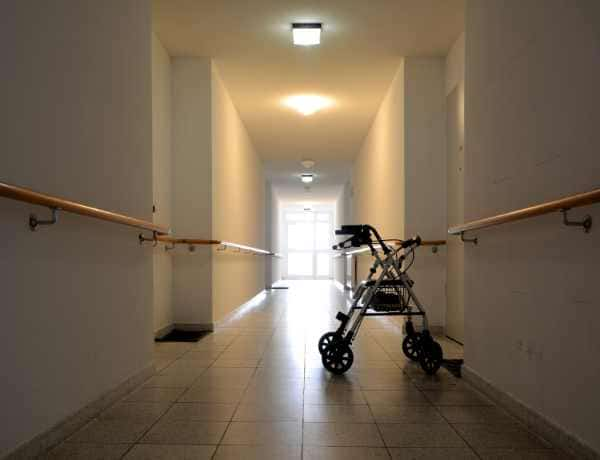Toll Free: (866) 907-1145
Local: (919) 833-3370
Toll Free: (866) 907-1145
Local: (919) 833-3370
The Journal of Health Affairs reports that the average nursing home neglect settlement for nursing home abuse cases in the US is around $406,000. The amount of money awarded in a nursing home abuse lawsuit settlement can vary widely depending on several factors, including the:
In general, settlements for nursing home abuse cases can range from a few thousand dollars to millions of dollars.

An average nursing home neglect and abuse settlement typically includes compensation for the victim's damages, which may include:
If you or a loved one has been a victim of nursing home abuse, you may incur medical bills related to the abuse. These medical bills may include:
If the abuse resulted in injuries that require emergency medical attention, such as broken bones, head trauma, or internal bleeding, the victim may need to go to the emergency room. Emergency room care can be expensive, and the bills can quickly add up.
In some cases, nursing home abuse can result in injuries that require hospitalization. Hospital stays can be costly, especially if the patient requires specialized care or surgery.
Victims of nursing home abuse may require medications to manage their pain or treat their injuries. These medications can be expensive, especially if they need to be taken over an extended period of time.
Victims of nursing home abuse may require rehabilitation to recover from their injuries. This can include physical therapy, occupational therapy, or speech therapy. Rehabilitation can be costly, especially if the victim requires ongoing care.
Nursing home abuse can also have a significant impact on the victim's mental health. Victims may require counseling, therapy, or medication to manage their mental health. Mental health care can be expensive, and the bills can add up quickly.
If you or a loved one has been a victim of nursing home abuse, it's important to keep track of all medical bills associated with the abuse. These bills may be included in a nursing home abuse lawsuit, and you may be able to recover compensation for these expenses. It's also important to speak with a nursing home abuse lawyer near me who specializes in nursing home abuse cases to determine your legal rights and options.
Nursing home abuse can have a significant impact on a victim's physical, emotional, and mental health, leading to pain and suffering. Pain and suffering is a legal term used to describe the physical and emotional distress a victim experiences as a result of an injury or harm caused by another person's actions or negligence. In the context of nursing home abuse, pain, and suffering may include:
Victims of nursing home abuse may experience physical pain as a result of injuries caused by the abuse. This pain may be acute or chronic and may require medication or medical treatment to manage.
Nursing home abuse can also cause emotional distress, such as:
Victims may feel betrayed by their caregivers and may struggle with feelings of helplessness and vulnerability.
Victims of nursing home abuse may also experience a loss of enjoyment of life. They may be unable to participate in activities they once enjoyed or may struggle to maintain their independence and autonomy.
Nursing home abuse can also lead to PTSD, a mental health disorder that can cause flashbacks, nightmares, and severe anxiety.
Nursing home abuse can also result in financial losses for the victim and their family. Financial losses associated with nursing home abuse may include:
Victims of nursing home abuse may require medical treatment or hospitalization as a result of the abuse. Medical expenses can include doctor's visits, hospital stays, medication, and rehabilitation costs.
Nursing home abuse can also result in property damage. For example, if the victim's personal belongings are stolen or destroyed as a result of the abuse, they may experience financial losses as a result.
In some cases, victims of nursing home abuse may need to relocate to a new facility or receive in-home care. These costs can include moving expenses, home modifications, and the cost of care services.
The specific details of the settlement will depend on the nature and extent of the abuse, as well as the jurisdiction in which the case is being litigated.
In addition to compensatory damages, a nursing home abuse settlement may also include punitive damages. Punitive damages are intended to punish the wrongdoer and deter similar conduct in the future. They may be awarded in cases where the abuse was particularly egregious or intentional.
The terms of a nursing home abuse settlement may also include non-monetary provisions, such as a requirement that the facility implements new policies or procedures to prevent future abuse.
It's important to note that every case is unique, and the specific terms of a nursing home abuse settlement will depend on the specific facts and circumstances of the case. It's always a good idea to consult with an experienced nursing home abuse lawyer if you or a loved one has been the victim of nursing home abuse.

When a loved one is mistreated or neglected in a nursing home, it can be a devastating experience for both the resident and their family. In some cases, a lawsuit may be necessary to hold the nursing home accountable for their actions. If you are considering pursuing legal action against a nursing home, it's important to understand the benefits of reaching a settlement.
One of the biggest benefits of reaching a nursing home lawsuit settlement is the emotional relief that comes with closure. When you settle a lawsuit, you can put the legal battle behind you and focus on healing and moving forward. This can be especially important for families who have endured emotional trauma as a result of their loved one's mistreatment.
Another significant benefit of reaching a nursing home lawsuit settlement is the financial compensation that may be awarded. This compensation can help alleviate the financial burden that often comes with nursing home abuse cases.
By pursuing a nursing home lawsuit, you are holding the nursing home accountable for their actions. This sends a message to the nursing home and the broader community that this type of behavior will not be tolerated. It can also encourage nursing homes to improve their practices and provide better care for their residents.
When nursing homes are held accountable for their actions, it can lead to changes in policies and procedures that prevent future abuse. Nursing homes may be more likely to invest in staff training, implement better monitoring systems, and take complaints more seriously.
Going to trial can be a long and stressful process, and there's no guarantee of a favorable outcome. Settling a nursing home lawsuit can help you avoid the uncertainty and expense of a trial. It can also help you avoid the emotional toll that comes with reliving the trauma in court.
Settlements are often confidential, which means that the details of the case are not made public. This can be beneficial if you want to avoid negative publicity or protect your privacy.
Some recent nursing home abuse lawsuit settlements as of that time include:
It's important to note that these are just a few examples of nursing home abuse lawsuit settlements and do not represent all cases or outcomes. Each case is unique, and settlements can vary depending on the specific circumstances and damages involved.
Nursing home abuse refers to any intentional or negligent act by a caregiver, staff member, or another resident of a nursing home that causes harm, injury, or distress to a nursing home resident. There are many different types of nursing home abuse, such as:
This refers to the intentional use of physical force against a resident, which can result in injuries such as:
This refers to the use of verbal or nonverbal behaviors to cause emotional pain, fear, or distress. Examples include:
Sexual abuse in nursing homes refers to any unwanted sexual contact or behavior, including:
Nursing home neglect refers to the failure of a caregiver to provide adequate care or basic needs, such as:
Neglect can result in serious health consequences or even death.
This refers to the misuse or theft of a resident's property or funds by a caregiver, staff member, or another resident of the nursing home.
It's important to note that nursing home abuse can be difficult to detect, as residents may be hesitant to report abuse or may be unable to communicate their experiences. Family members and loved ones should be vigilant for signs of abuse, such as unexplained injuries, changes in behavior or personality, or sudden financial changes. If you suspect elder abuse, it's important to report it to the appropriate authorities and seek legal advice to protect the resident's rights and well-being.
If you believe that nursing home abuse has led to the death of a loved one, it is important to take immediate action. Here are some steps you can take:
If you suspect that your loved one's death was the result of nursing home abuse, contact your local law enforcement agency immediately. They will conduct an investigation into the matter and gather evidence that can be used to hold those responsible accountable.
Consider seeking the advice of an experienced nursing home wrongful death lawyer. They can help you understand your legal options and assist you in pursuing a lawsuit against the nursing home or staff responsible for your loved one's death.
Contact your state's Adult Protective Services agency to report the abuse. They will conduct their own investigation into the matter and take action to protect other residents in the facility.
Remember that you have the right to seek justice for your loved one. By taking action, you can help prevent similar tragedies from happening to others in the future.
If you suspect that your loved one has been a victim of nursing home abuse, it's important to take action to protect their health and well-being. One option is to file a nursing home abuse lawsuit with an elder law attorney. Here are some steps you can take to file a nursing home abuse lawsuit:
Before filing a lawsuit, it's important to document any evidence of abuse, such as photographs of injuries, medical records, witness statements, and other documentation.
You should report the abuse to the appropriate authorities, such as the nursing home administration, state licensing board, or adult protective services.
It's important to consult with an elder abuse attorney who specializes in nursing home abuse cases to understand your legal rights and options. An experienced nursing home abuse attorney can help you investigate the case, gather evidence, and file a lawsuit.
If you decide to move forward with a lawsuit, your attorney will file a complaint with the court, which outlines the allegations of abuse and the damages you are seeking.
You may need to attend court hearings and depositions as part of the legal process. Your attorney will represent you and your loved one in court and advocate for your rights and interests.
In some cases, the nursing home or their insurance company may offer a settlement to avoid a trial. Your attorney can help you negotiate a fair settlement that compensates you for damages and losses.
It's important to note that the process of filing a nursing home abuse lawsuit can be complex and emotionally challenging. A nursing home abuse lawyer can provide guidance and support throughout the process and help you achieve a favorable outcome for yourself and your loved one.
Attorney Advertising | Prior results do not guarantee a similar outcome. The information on this website is for general information purposes only. Nothing on this site should be taken as legal advice for any individual case or situation. This information is not intended to create, and receipt or viewing does not constitute, an attorney-client relationship. This site is protected by reCAPTCHA and the Google Privacy Policy and Terms of Service apply.